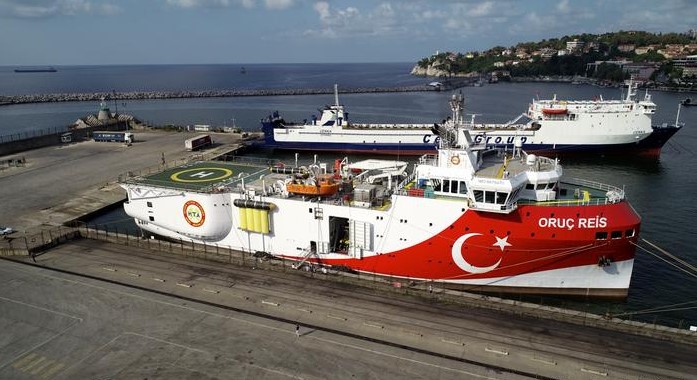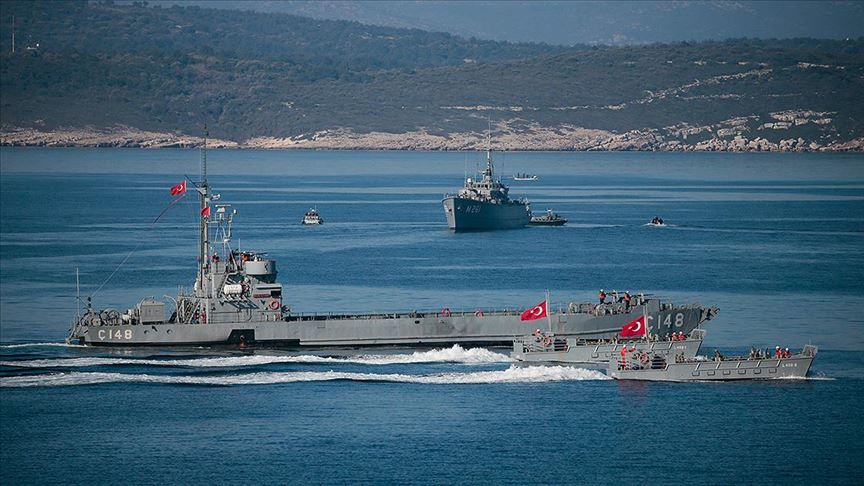Turkey has rejected Greek plans of expanding its continental shelf through islets in the Aegean Sea and confining Turkey to the Anatolian peninsula in the Eastern Mediterranean region.
GREECE CLAIMED TURKISH VESSEL HAS VIOLATED LAW
As part of the country’s hydrocarbon exploration activities, Turkey announced new seismic research activity in the Eastern Mediterranean via NAVTEX (navigational telex) starting July 21, 2020.
Using a small islet a few miles away from Turkey’s coast as an excuse, the Greek Foreign Ministry alleged that Turkish drill ship Oruc Reis has violated its rights in the Eastern Mediterranean continental shelf.

The Greek statement is based on its maritime principle according to which O however, such views do not correspond to international law.
The principle of equidistance does not hold value in the context of delimitation of exclusive economic zones (EEZ) and continental shelves in international law.
A SECOND TURKISH VESSEL IN THE REGION
The fundamental rule in both international law and the UN Convention on the Law of Sea is based on the principle of equal sharing. This principle enables islands to have relatively less area of continental shelf and EEZ, in fact, the islands might even get completely surrounded. At this point, there are multiple factors taken into consideration, such as the size and location of these landscapes, and their distance to the mainland.

In addition, the marine space the Turkish vessel is set to explore falls under the continental shelf Ankara administration declared to the UN and license blocks granted to Turkish Petroleum Corporation (TPAO) in 2012.
Moreover, another Turkish seismic vessel — Barbaros Hayrettin Pasa — had previously held activities in the same territory.
The Turkish government rejected the Greek stance saying that the island — Meis — located about 2 kilometers (1.2 miles) to the Turkish coast and 580 km (360 mi) to the Greek coast – makes up 40,000 square kilometers (15,444 square miles) of continental shelf.













